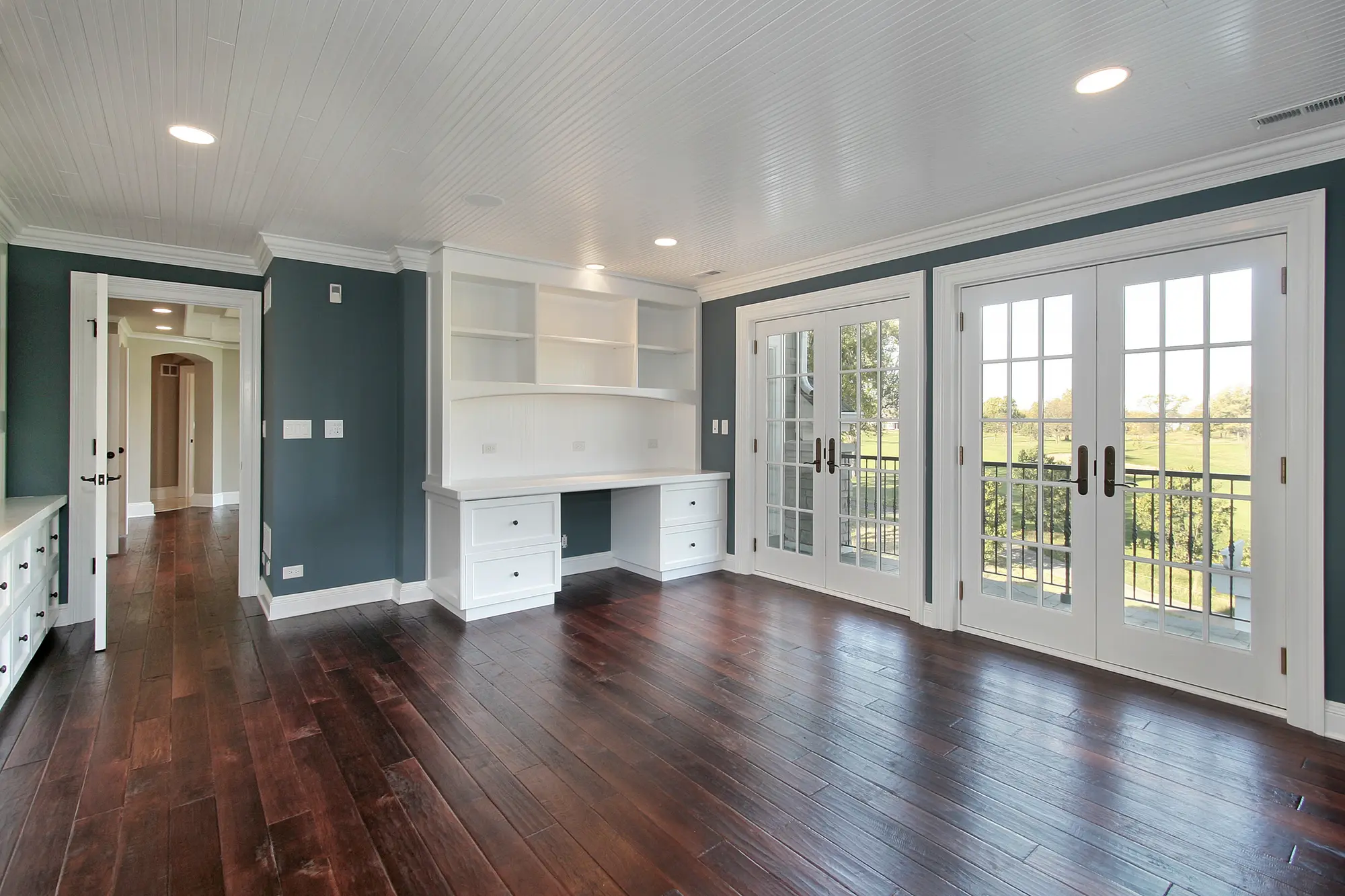When homeowners or investors think about improvements that can add value to a property, flooring might not always be the first thing that comes to mind. However, hardwood flooring is a prime example of an investment that can offer substantial financial benefits over time.
Let’s delve into why investing in hardwood flooring is not just about aesthetics, but also about financial wisdom.
What is Hardwood Flooring?
Hardwood flooring is an elegant and timeless addition to any home. It adds beauty, sophistication, and value to your home with its natural grain and warm tones. With proper care, hardwood floors can last for decades or even generations.
What are the Benefits of Hardwood Flooring?
Hardwood flooring is a timeless classic that has been utilized in homes for centuries. It adds natural beauty and warmth to any room, as well as providing valuable insulation against noise and heat transfer.
- Increased Home Value: Hardwood floors can significantly increase the value of a property. According to real estate professionals, homes with hardwood flooring tend to sell faster and at higher prices compared to those with other types of flooring. The luxurious and timeless appeal of wood is something many buyers are willing to pay extra for.
- Durability: One of the main reasons hardwood floors are seen as an excellent investment is their longevity. With proper care, they can last for decades, if not longer. Over the long term, this means saving money on replacements and major repairs that might be necessary with less durable flooring options.
- Cost-Effective Maintenance: While the initial cost of hardwood flooring might be higher than some alternatives, the maintenance costs can be considerably lower. Unlike carpets that require regular deep cleaning or other materials that may stain easily, hardwood floors can be maintained with regular sweeping and occasional mopping. When scratches or wear do appear, refinishing can bring them back to life without the need for a complete replacement.
- Energy Efficiency: Hardwood floors can act as excellent insulators. During the winter, they can help retain warmth, leading to decreased heating bills. Conversely, in warmer months, they remain cool, making the home environment more comfortable and reducing the need for constant air conditioning.
- Versatility in Home Design: Trends in home design change over time. However, hardwood flooring has a timeless appeal that can fit with both modern and traditional designs. This versatility means that even as you update or change your home decor, the flooring remains relevant, eliminating the need for frequent flooring updates.
- Better Air Quality: Unlike carpets that can trap dust, allergens, and mites, hardwood floors contribute to better indoor air quality. This can be particularly beneficial for those with allergies. Over time, the health benefits can translate to financial savings by potentially reducing medical bills and improving overall well-being.
- Higher Rental Rates: For property investors, hardwood flooring can command higher rental rates. Prospective tenants often view properties with hardwood flooring as premium options, making them willing to pay a bit more for the privilege.
- Resale Appeal: If you ever decide to sell the property, having hardwood flooring can be a significant selling point. Potential buyers often perceive it as a high-quality feature, reducing the time the property stays on the market and increasing the chances of getting a favorable offer.
Are Hardwood Floors a Good Investment?
When it comes to making a good investment in your home, hardwood flooring is an excellent option. Not only does it add value and aesthetic appeal to any space, but it also provides long-term durability that will last for years. Hardwood floors are incredibly easy to maintain, with minimal cleaning and maintenance required to keep them looking their best.
Additionally, hardwood flooring provides superior insulation to help keep your home warm in the winter and cool in the summer. With all these benefits, it’s no wonder that hardwood floors are a popular choice for homeowners looking for a smart investment.
Why is Hardwood Flooring Sustainable?
Hardwood flooring is often considered sustainable due to several factors that contribute to its environmentally friendly characteristics. Here’s why hardwood flooring is considered a sustainable choice:

- Renewable Resource: Hardwood is derived from trees, which are a renewable resource. Responsible forestry practices ensure that trees are harvested in a way that allows for regrowth and replenishment. Reputable hardwood manufacturers follow sustainable forestry practices that promote responsible tree harvesting and reforestation.
- Carbon Sequestration: Trees absorb carbon dioxide (CO2) from the atmosphere as they grow. This process, known as carbon sequestration, helps mitigate the effects of greenhouse gasses and climate change. Hardwood trees, such as oak, maple, and cherry, contribute to carbon storage throughout their lifecycle.
- Longevity: High-quality hardwood floors are known for their durability and longevity. When properly maintained, hardwood flooring can last for decades. This longevity reduces the need for frequent replacements, which in turn reduces the overall demand for new materials and resources.
- Low Embodied Energy: The energy required to produce hardwood flooring is relatively low compared to some other flooring materials. Harvesting and processing hardwood generally involve less energy-intensive methods than those used for synthetic materials.
- Biodegradability: At the end of its life cycle, hardwood flooring is biodegradable. When disposed of properly, wood can break down naturally without causing long-lasting environmental harm. This contrasts with non-biodegradable materials that contribute to landfill waste.
- Minimal Waste: Wood manufacturing processes often result in minimal waste. By utilizing different parts of the harvested trees, such as creating planks from the main trunk and using smaller branches for other purposes, the industry maximizes the use of available resources.
- Low Maintenance Requirements: Hardwood flooring’s durability reduces the need for frequent replacements. Additionally, routine maintenance (like sanding and refinishing) can extend the lifespan of the flooring, further reducing the environmental impact associated with replacements.
- Health Benefits: Hardwood flooring is a healthier option for indoor air quality compared to carpets that can trap allergens and dust. Hardwood floors are easier to clean and don’t harbor allergens or toxins, contributing to a healthier living environment.
It’s important to note that the sustainability of hardwood flooring also depends on responsible sourcing, ethical practices, and the adherence to certifications such as the Forest Stewardship Council (FSC), which verifies sustainable forestry practices. When considering hardwood flooring, researching the source of the wood and the manufacturer’s practices can help ensure that you’re making a truly sustainable choice.
At Vinyl Flooring & Beyond, we offer a complete range of services to ensure a hassle-free installation of your hardwood flooring. Our team is filled with experienced professionals who have the knowledge and expertise to create the perfect look and feel for your home.




